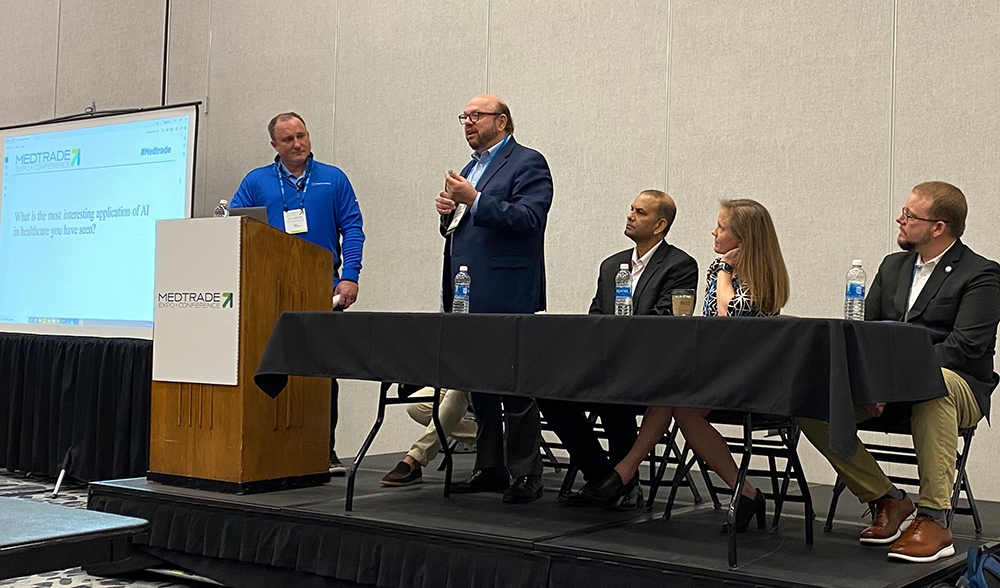Panelists underscore true potential of AI
By Liz Beaulieu, Editor
Updated 4:44 PM CDT, Wed March 27, 2024

DALLAS – HME providers can cut through the buzz around AI by focusing on how the technology can increase their efficiency, a panel of experts told Medtrade attendees on Wednesday.
“It’s not that AI is the silver bullet that solves our problems, or the devil,” said Gary Sheehan, founder and managing director of Scorton Creek Capital, who moderated the panel titled, “AI in health care: Actual clinical, workflow and automation applications working today.” “It can augment our human capabilities and give us back time. That’s relevant for an industry that has seen (significant reductions) in reimbursement.”
Sheehan was joined by Justin Smith, senior manager, Direct Supply Innovation & Technology Center; Jim Boswell, president and CEO of OnPoint Healthcare Partners; Charlotte Lawson, CEO and co-founder of Darby; Justin Mortara, CEO and president of EnsoData; and Manish Ladha, senior director of global product management for ResMed.
Manual missteps
Using AI to make entering and processing data more efficient is a low-hanging fruit for HME companies, Lawson said.
“(It can) bring the joy back to your staff,” she said. “We have 100 hours of video of them doing qualification and data entry into Brightree and TIMS and there are benefits to all these softwares, but there are some significant manual components to these roles. They’re not fun and they’re error prone, and that has a lot of implications.”
Use case
AI’s usefulness goes beyond administrative tasks, Ladha said. In a pilot with certain customers in the U.S., ResMed, for example, is leveraging AI to provide predictions and forecasting so HME companies can focus on the right patients to maximize adherence and, therefore, reimbursement.
“We saw that, on average, one out of five patients came to the one- to five-day window to reach compliance and fell off,” he said. “As the HME, if you had known, you could have focused on these patients, (as) they’re so close to reaching that compliance window.”
‘Prompt engineering’
No one expects HME companies to start hiring computer engineers to better leverage AI, so it’s important to search for partners that are willing to listen to their pain points and mold existing solutions or create new solutions to meet their needs, Boswell said.
“Reach out to them and define your problem,” he said. “They are the AI experts. You don’t have to hire engineers to solve a problem. There is an evolving business (around) this idea of prompt engineering. We’re building experts internally. It’s very use-case specific.”
Try, try again
Because AI is always evolving – it’s a living, breathing thing, in other words – it’s important for HME companies to stick with it, Smith said.
“The worst AI is the AI you’re using today,” he said. “Come back tomorrow and try it again. If you’re not using (ChatGPT) to some degree, you should try it. I liken it to the start of search engines. The more information you give it; the better information you’re going to get back.”
Comments